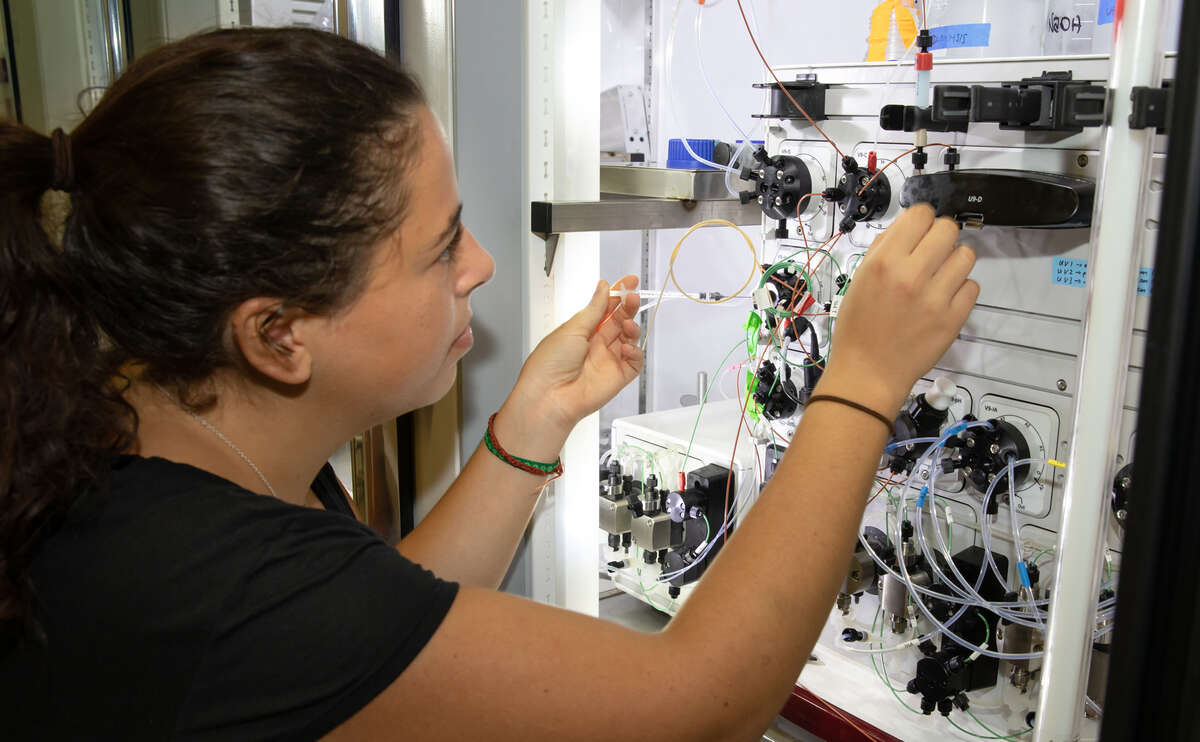Testimonial Victoire Tribout
EPFL Lausanne, Research Group Sebastian Hiller

Where do you come from and what are you studying?
I grew up in Paris and now I study in Lausanne in the French part of Switzerland. I have just finished my bachelor in Chemistry and Chemical Engineering and in autumn I will start with the Master in Chemical Engineering and Biotechnology, also at the EPFL.
Why did you apply for the Biozentrum Research Summer?
I have always been struggling with whether to go into research later or to work for a company. Normally, you only get the chance for an internship when you have finished your masters, but by then you should actually have already decided in which direction you are heading. The Research Summer is really a great opportunity to discover, at an earlier stage in your career, what lab work is all about and how it is to work at a university. I still haven’t decided but what’s for sure after these weeks at the Biozentrum is that I want research to be part of my life in one way or the other.
In the application process you could indicate your preferred research groups. How did you choose it?
I chose Sebastian Hiller’s group because they work with NMR spectroscopy. This is something I find truly fascinating and I have always loved my classes related to spectroscopy and physical chemistry. Since I didn’t have much background in biology but was already familiar with spectroscopy, I thought I would fit into this group the best.
What are you working at and what have your learned?
We are trying to find new methods to easily detect the COVID-19 virus. We are still at the beginning of the project but for me it has been great to gain so many manual skills. I have had quite some experience in chemistry related lab work but now I have learned how to transform DNA, how to express and purify proteins and I have also learned so much about biochemistry.
How does it feel to work in a research group?
It is really exciting. In this specific program you are not just kind of a “handyman”, like in other internships. You really have your own project and it is intellectually quite challenging to continuously think about solutions. At first, I was desperate when an experiment failed. In the meantime, I have become used to trial and error. I mean, this is how real research works and this contrasts pretty much with the experiments we did in classes, where the teacher already knew what the results would be.
How is the interaction in the group?
Well, at first my tutor had to explain everything to me since I didn’t know much about biochemistry. Now I am quite independent, it has become just teamwork. Sometimes, for example, he asks me to design an experiment and then just has a quick look at it. Every day, I am getting more confident. We also interact with the other team members and other groups and have lunch together. For me, it is also very interesting to learn what others are doing.
Would you recommend the Research Summer to others?
Absolutely. If you already know that you want to do research, then it is an amazing way to dive in. And if you are not yet sure, then it is a very nice way to find out. And the great thing is that it is designed for people with very different backgrounds. Look at the four of us who are participating this year, we are students in biology, medicine, quantum engineering and chemistry.


